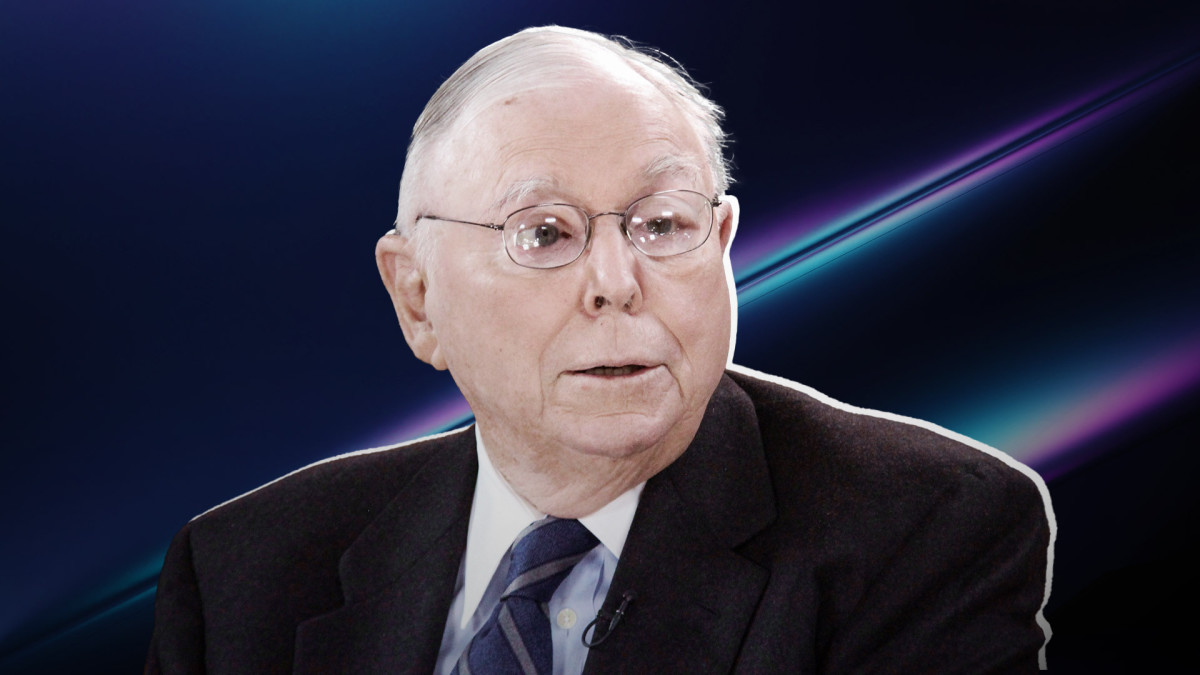
Charlie Munger, who died just a month shy of his 100th birthday this week, leaves one of the most investment revered legacies in the history of Wall Street.
The nonagenarian billionaire and candy addict, who joined Warren Buffett's Berkshire Hathaway as vice chairman in 1978 after trading in his law practice in favor of the financial markets the previous decade, will of course be forever likened to the Oracle of Omaha's broader success.
“Berkshire Hathaway could not have been built to its present status without Charlie’s inspiration, wisdom and participation,” Buffett said.
But his owns views on investing, as well as his home-spun theories on existential issues such as time, patience, virtue and hard work, provide the very bedrock of financial analysis that can, and probably should, be replicated by virtually everyone looking to enhance their person wealth.
Below is a quick compendium of five of Munger's key investment principles, the foundation with which he was able to amass a personal fortune of around $2.4 billion while helping shepherd a 4,000% increase in the value of Berkshire Hathaway stock under his one-in-a-generation tenure in Nebraska.
Related: Berkshire Hathaway investing giant Charlie Munger dies at 99
1. Know Your Stuff
Munger often referred to this basic concept as staying within your own 'circle of competence' and focusing investment decisions on industries and companies that you can truly understand.
"You have to figure out what your own aptitudes are. If you play games where other people have the aptitudes and you don’t, you’re going to lose," Munger said. "And that’s as close to certain as any prediction that you can make. You have to figure out where you’ve got an edge. And you’ve got to play within your own circle of competence."
2. Who gains?
Understanding incentives, Munger often said, is a key tenant in the investment canon that can provide a clearer understanding as to why management makes certain decisions and how they can guide future outcome.
"Show me the incentive, and I will show you the outcome," Munger famously said. "The basic rule of incentives is that you get what you were rewarded for. If you have a dumb incentive system, you get dumb outcomes."
3. Be Safe
Befitting a man who, despite his vast wealth, lived simply and well, Munger adopted the value investing theory, first advanced by American economist Benjamin Graham, of a margin of safety.
Munger understood that undervalued stocks can always get cheaper, and thus opted to instead by securities that trade well below their inherent value in order to provide a cushion to unexpected losses.
“In engineering, people have a big margin of safety. But in the financial world, people don’t give a damn about safety," Munger said. "When you build a bridge, you insist it can carry 30,000 pounds, but you only drive 10,000 pound trucks across it. And the same idea works in investing.”
A titan of business and keen observer of the world around him, Charlie Munger helped build an American institution, and through his wisdom and insights, inspired a generation of leaders. He will be sorely missed. Rest in peace Charlie. pic.twitter.com/vNGDktOAhz
— Tim Cook (@tim_cook) November 28, 2023
4. See the edge
Munger, like Buffett, has always favored investment in companies with a so-called 'competitive moat', or a protective layer against their rivals. Companies with 'moats' that isolate their competitive advantages, such as Apple's services divisions that ties its hardware to recurring revenues in the broader eco system, hold tremendous value, Munger argues.
“We buy barriers. Building them is tough. Our great brands aren’t anything we’ve created. We’ve bought them," Munger said in 2012. "If you’re buying something at a huge discount to its replacement value and it is hard to replace, you have a big advantage. One competitor is enough to ruin a business running on small margins.”
5. The power of compound interest
A basic, but often underrated investment principal, compound interest gains formed much of the underlying success of Munger's decades long career in finance.
Dovetailing with each of the four previous theories, reinvesting gains from good, competitive and predictable companies over the long term can add exponential growth even the most modest portfolio.
"Spend each day trying to be a little wiser than you were when you woke up. Discharge your duties faithfully and well. Step by step you get ahead, but not necessarily in fast spurts," Munger said. "But you build discipline by preparing for fast spurts. Slug it out one inch at a time, day by day, and at the end of the day – if you live long enough – most people get what they deserve.”
Wall Street, and the world, has lost a great man.
Action Alerts PLUS offers expert portfolio guidance to help you make informed investing decisions. Sign up now.







